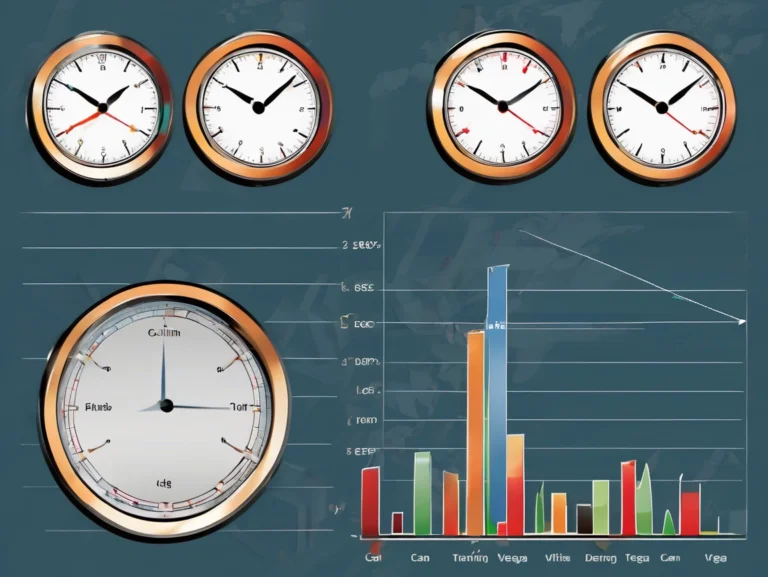📘 Lesson 5: Understanding the Greeks — The 4 Numbers That Predict Your Option’s Behavior
🧠 Core Concept
In options trading, “The Greeks” are risk metrics that help you understand how your option’s value will change over time, with price, volatility, and expiration.
These are not Greek philosophers — they’re mathematical tools that smart traders use to control risk and time their trades.
🔢 The 4 Most Important Greeks
1️⃣ Delta (Δ) – Directional Movement
Measures: How much the option price moves when the stock price moves by $1.
| 🔹 Delta Value | Meaning |
|---|---|
| 0.50 | Option will move $0.50 for every $1 stock move |
| 1.00 | Deep ITM Call – behaves like the stock |
| -0.50 | Put Option – goes up when stock drops |
✅ Call options have positive delta,
❌ Put options have negative delta
Think of Delta as your “odds of winning.” A delta of 0.70 = 70% chance of expiring in the money.
2️⃣ Theta (Θ) – Time Decay
Measures: How much value the option loses per day as time passes (if all else stays equal).
| 🔹 Theta Value | Meaning |
|---|---|
| -0.05 | Option loses $5 per day (× 100) |
- Options lose value every day due to time decay.
- Theta increases as expiration gets closer, especially for out-of-the-money options.
⏳ Time is the enemy if you’re just buying options.
3️⃣ Vega (V) – Volatility Sensitivity
Measures: How much the option price changes when implied volatility increases by 1%.
| 🔹 Vega Value | Meaning |
|---|---|
| 0.10 | Option gains $10 if volatility rises 1% |
- If a big earnings event is coming → Vega rises
- When volatility drops → option value can fall, even if the stock moves your way
🌪️ High Vega = sensitive to market fear and news
4️⃣ Gamma (Γ) – Acceleration of Delta
Measures: How much Delta changes when the stock price moves by $1.
| 🔹 Gamma Value | Meaning |
|---|---|
| 0.05 | Delta will increase or decrease by 0.05 |
Gamma helps you understand how fast your option becomes more sensitive to stock movements.
⚠️ High Gamma = fast-changing risk, especially close to expiration
🧠 Why the Greeks Matter
| Greek | What It Tells You | Helpful For… |
|---|---|---|
| Delta | Directional exposure | Trade direction + probability |
| Theta | Time decay impact | Holding length decisions |
| Vega | Sensitivity to market volatility | Earnings/News events |
| Gamma | Delta’s sensitivity to stock price | Fast-moving trades |
📈 Greeks in Action: AAPL Call Option Example
| Stock = $100 | Option Strike = $105 | Premium = $2 |
|---|---|---|
| Delta = 0.40 | Theta = -0.04 | Vega = 0.12 |
- If AAPL goes up $1 → Option gains $0.40
- If 1 day passes → Option loses $0.04
- If IV rises 1% → Option gains $0.12
→ Use this to estimate your next-day or next-week value
⚠️ Tips for Beginners
- Avoid low delta & high theta options (lose value fast)
- When volatility is low, it’s better to buy options
- When volatility is high, it’s better to sell options
- Always check the Greeks before entering any trade
Take a look at this Options Greeks Calculator
✅ Quick Quiz
- What does Delta measure?
- What is the Greek that tells you how fast your option loses value?
- If volatility increases 5%, what Greek helps you measure impact?
🧠 Answers
- Delta = How much your option moves with stock price
- Theta
- Vega
Check out our other lessons in our Stock Options Education Series.

